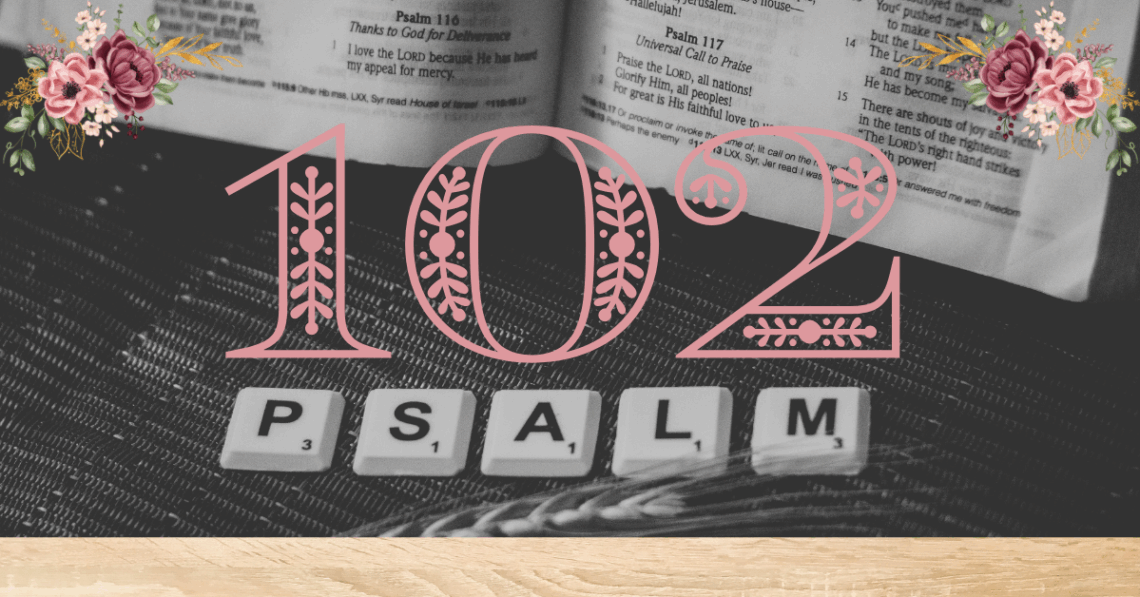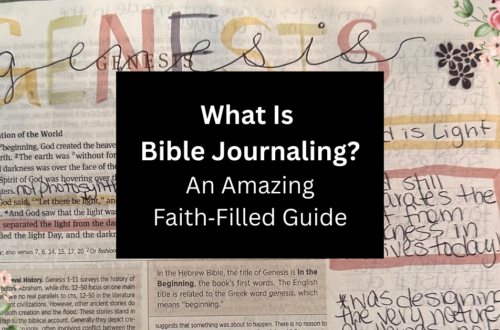Psalm 102 is a poignant prayer of distress, attributed to an individual who is suffering deeply. The psalmist expresses personal affliction, physical and emotional distress, and a sense of abandonment by God. Yet, amidst this pain, the psalmist also recognizes God’s eternal nature and His ability to heal and restore. This psalm serves as both a lament and a declaration of trust in God’s sovereignty, offering comfort to those going through difficult trials.
Background of Psalm 102
Psalm 102 is considered one of the penitential psalms, a category of psalms that express sorrow, confession, and plea for mercy. The psalmist’s suffering seems to be physical, emotional, and spiritual, which is reflected in the vivid language of distress. Despite the overwhelming pain, the psalmist acknowledges that God is eternal and sovereign, expressing hope that God will act in His time.
The psalm is often interpreted as an individual’s cry for help, though it can also be applied to the nation of Israel, which at the time was in exile. The psalmist’s despair is contrasted with God’s unchanging nature, and this dual focus—on human suffering and divine transcendence—offers hope that, no matter the circumstances, God’s love endures forever.
What Does Psalm 102 Mean?
Psalm 102 is an expression of deep anguish and suffering, but also a declaration of trust in God’s eternal nature. The psalm can be divided into two major sections: the first part (verses 1–11) focuses on the psalmist’s suffering and plea for mercy, and the second part (verses 12–28) transitions to an expression of trust in God’s eternal sovereignty and the hope of restoration.
- Verses 1–2: The psalmist calls out to God in the midst of distress, seeking God’s attention.
- Verses 3–11: A vivid description of the psalmist’s affliction, both physically and emotionally. The psalmist feels as though they are at the end of their life, and the suffering seems unbearable.
- Verses 12–22: A turn toward acknowledging God’s eternal nature and the psalmist’s hope in God’s restoration. The psalmist reflects on the temporal nature of human life compared to God’s eternal existence.
- Verses 23–28: A final declaration of trust in God’s sovereignty, recognizing that God will restore and rebuild, and that His people will again experience His favor.
Verse Mapping Psalm 102:1
“LORD, hear my prayer; let my cry for help come before You.” (CSB)
- Word Study
- LORD – The Hebrew word used here is “YHWH,” the covenant name of God, emphasizing His personal and relational nature. The psalmist is not just calling out to a distant deity but to the God who is intimately involved with His people.
- Hear my prayer – This is a plea for God’s attention. The psalmist desires God to listen to their suffering and respond.
- Cry for help – The word for “cry” in Hebrew indicates a loud, desperate call, reflecting the intensity of the psalmist’s need. This cry signifies a deep sense of urgency, as the psalmist is reaching out for God’s intervention.
- Cross-References
- Psalm 34:17 – “The righteous cry out, and the LORD hears, and rescues them from all their troubles.”
- Psalm 55:16-17 – “But I call to God, and the LORD saves me. I complain and groan morning, noon, and night, and He hears my voice.”
- Jeremiah 29:12 – “You will call to Me and come and pray to Me, and I will listen to you.”
- Paraphrase “LORD, hear my desperate prayer and let my plea for help reach Your ears.”
- Application This verse highlights the importance of calling out to God in times of distress. Just as the psalmist cries out to God, we are encouraged to bring our burdens to God, knowing that He listens and is present in our suffering. It is a reminder that we are not alone in our struggles—God is attentive and cares for us, even in our lowest moments.
How Can We Apply Psalm 102 Today?
- Cry Out to God in Times of Distress The psalmist’s raw and emotional cry to God in the midst of suffering teaches us that it’s okay to express our pain and frustration to God. God invites us to bring our troubles to Him, trusting that He hears and cares. Whether in physical illness, emotional pain, or spiritual distress, we are encouraged to call out to God for help.
- Acknowledge God’s Eternal Nature As the psalm transitions, the psalmist recognizes that God’s character and reign are eternal. This is a powerful reminder for us that no matter how temporary our struggles may seem, God is everlasting. Our circumstances are fleeting, but God remains constant. In moments of suffering, we can take comfort in the fact that God’s promises are unchanging.
- Trust in God’s Restoration Despite the psalmist’s deep pain, they express hope for restoration. We can also trust that God will restore us, whether in this life or the next. Even when we don’t understand why we are suffering, we can rest in the assurance that God has the power to heal and restore, and that He is ultimately working for our good.
- Keep an Eternal Perspective Psalm 102 offers a perspective that helps us navigate suffering with hope. The psalmist reflects on the fleeting nature of life and the eternal nature of God. This helps us put our struggles into context, remembering that this life is temporary, but God’s love and our relationship with Him are eternal. When we face difficulties, remembering our eternal hope in Christ can provide the strength to endure.
Reflection Questions
- Have you ever experienced a time when you felt like God wasn’t hearing your prayers? How did you respond?
- How can you remember God’s eternal nature in the midst of your struggles?
- In what ways can you trust God to restore and rebuild areas of your life that feel broken or hopeless?
- How does the eternal perspective of Psalm 102 help you approach the trials you face today?
A Closing Prayer
Lord, in times of distress, I come before You with a heart full of sorrow and pain. Hear my cry for help and comfort me with Your eternal presence. Help me to trust in Your sovereignty and remember that You are faithful to restore what has been broken. I place my hope in You, knowing that You are everlasting and Your promises endure forever. In Jesus’ name, Amen.
Final Thoughts
Psalm 102 is a heartfelt prayer of anguish, yet it transitions into a powerful expression of hope in God’s eternal nature and His ability to restore. It reminds us that God listens to our cries, that He is sovereign over all things, and that He will ultimately bring healing and renewal. In our own struggles, may we follow the psalmist’s example of calling out to God and trusting in His faithfulness.





